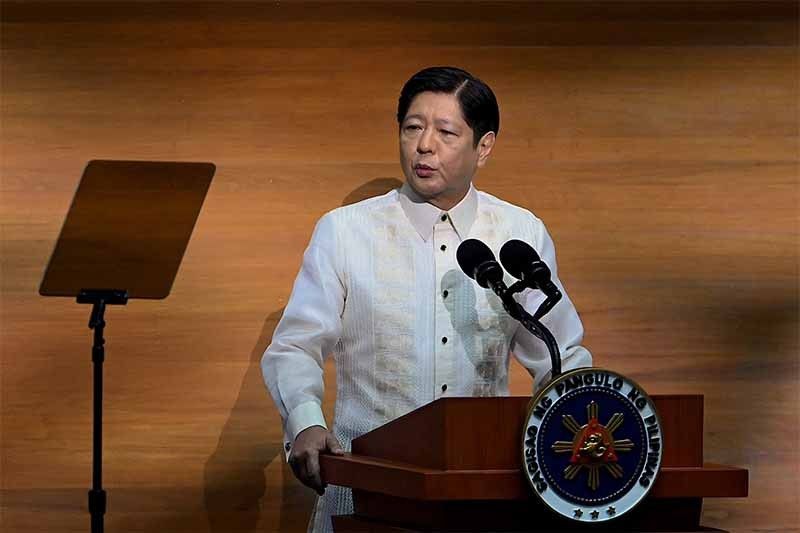Addressing corruption on every level

One year of the Marcos administration has passed, and people have been waiting for the administration’s next steps that would demonstrate a stronger anti-corruption position.
During the State of the Nation Address, the president announced that he was against corruption. But what people want to know is that beyond the rhetoric, what concrete policy is there? What can we expect?
A Pulse Asia survey conducted in June showed the need to fight graft and corruption in government came in fifth on a list of what people identified as their most urgent national concerns. Controlling inflation and increasing the pay of workers topped the list, naturally because these affect Filipinos’ day-to-day quality of life. But after these basic concerns are met, mitigating public sector corruption is the next concern of the people.
Seeing the SONA in light of this recent survey gives us an interesting perspective. One, President Marcos has made his stance against corruption clear—that it will not be tolerated in government, and that digitalization, one of his administration’s largest reforms, will tackle corruption by fostering transparency and accountability.
I agree with the president to a great extent, and the most recent Pulse Asia survey supports this as well. One question in the survey asks respondents to show how they are most affected by corruption. Here’s the interesting bit: rather than picking an economic effect such as losing money due to bribes or lessened public funds overall, respondents showed that the top two greatest effects were a loss of trust in government services and public officials, and a normalized attitude towards corrupt activity.
This tells us that the greatest consequence of corruption is brought about by the everyday experiences of people dealing with corrupt activity, such that they have become desensitized to it.
Corruption also greatly erodes trust in the public sector. When people constantly experience extortion or the need to bribe to facilitate government services, they lose trust in the system. They continue to conduct their affairs through corrupt means even though there are legitimate ways of doing so.
Indeed, digitalization efforts can be a game-changer in eradicating person-to-person interactions, thereby greatly limiting opportunities for petty corruption like bribes. Digitizing government services can restore trust in the government and remind us that corruption is neither good nor beneficial, no matter how widespread it has become.
Here, however, is where my apprehension about the president’s focus comes in. While everything may go according to plan and everyday-level corruption is kept in check, this takes the focus away from other types of corruption such as large-scale corruption in higher places in government, or what we call grand corruption.
Filipinos are no strangers to allegations of grand corruption, from large-scale agricultural smuggling enabled by officials in the Department of Agriculture, to corruption in the health sector such as the missing PhilHealth funds that remain a mystery until today.
Even as the public continue to build trust in public service delivery through digitalization, these efforts can be significantly dampened if large-scale corrupt activities remain prevalent. They will continue to undermine public trust. The President said he would accept the resignation of people involved in drug trade allegations. This is a token gesture at best because the root causes remain unaddressed.
Corruption should be addressed in all government sectors. This begins with a comprehensive anti-corruption framework where each sector becomes responsible for identifying and mitigating corrupt activity, rather than entrusting whole processes to a few key bodies like the Commission on Audit, the Office of the Ombudsman, the Anti-Red Tape Authority and the like.
This last point is supplemented by public opinion in the last Pulse Asia survey where 84% of Filipinos believe that the government should continually strengthen laws, existing mechanisms, and agencies to continue combatting corruption.
Other whole-of-society approaches include adding anti-corruption education to the curriculum for more longitudinal outcomes, passing the Freedom of Information Act for greater transparency, and in the long run, creating a truly independent Anti-Corruption Commission.
These are ideal policy directions for the government. Judging from the direction of the SONA as a metric for the next five years however, a whole-of-society approach against fighting corruption does not seem to be a priority.
Still, any effort towards mitigating corruption is always welcome, and digitalization is a good first step. Filipinos hope that as the president continues to push for greater transparency in government service delivery and systems, the rest of Congress will follow suit.
Filipinos shouled be vigilant and vocal as thet assess whether these anti-corruption efforts are realistic, or just for show.
Mashan Bernice “Shanice” Espiritu is the policy and regulatory manager of think tank Stratbase and co-convenor of Democracy Watch, Philippines. She holds a Masters’ degree in Public Policy with a specialization in Integrity and Anti-Corruption Policy under the Australian National University.
- Latest



























